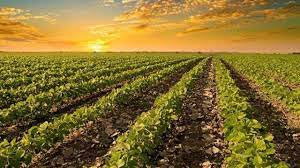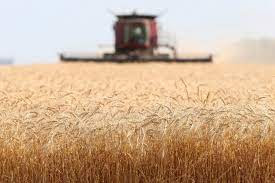As the world countenances mounting difficulties presented by environmental change, natural debasement, and food security concerns, maintainable cultivating rehearses have arisen as a beam of trust in the rural area. Sustainable farming addresses a groundbreaking methodology that looks to adjust environmental stewardship, financial feasibility, and social obligation. By focusing on long-haul suitability over momentary increases, feasible cultivating rehearses offer a promising answer for addressing the major problems tormenting conventional rural frameworks. This article investigates the meaning of sustainable farming and how it can light up the fate of agriculture as per Benedict T palen Jr.
Conservation of Natural Resources
Sustainable cultivating centers around protecting and
utilizing regular assets like soil, water, and biodiversity. By utilizing
strategies, for example, crop turn, cover trimming, and insignificant
culturing, feasible ranchers lessen soil disintegration, further develop soil
richness, and moderate water wastage. These practices cultivate versatile
biological systems that can get through environmental change and safeguard the
vocations of ranchers for a long time into the future.
Climate Change Mitigation
Conventional agricultural practices are huge
supporters of ozone-harming substance outflows. Sustainable cultivating, then
again, takes on rehearses that sequester carbon dioxide and diminish the
general carbon impression of cultivating tasks. Carbon sequestration through
rehearses like agroforestry and the utilization of cover harvests can assume a
fundamental part in moderating the impacts of environmental change.
Biodiversity and Ecosystem Health
Sustainable farming promotes biodiversity, both within
and outside farm boundaries. Farmers integrate wildlife corridors, practice
agroforestry, and set aside areas for native vegetation to support diverse
ecosystems. This approach not only aids in pest control but also fosters a
balanced and resilient environment where natural processes can thrive.
Improved Water Management
Water shortage is a major problem in numerous
districts, influencing farming and networks. Sustainable farming stresses
proficient water the board rehearses, such as water reaping, dribble water
system, and reusing, to limit water utilization. This approach upgrades the
maintainability of farming activities and advantages nearby watersheds.
Economic Resilience
Contrary to the misguided judgment that manageable
cultivating is less productive, studies have demonstrated that feasible
practices can prompt monetary flexibility and long-haul benefit. By lessening
input costs, limiting reliance on outer data sources, and building better
soils, maintainable ranchers can adjust better to showcase vacillations and
natural changes.
Social Impact and Food Security
Sustainable farming rehearses advance fair work
practices and local area commitment. They encourage neighborhood food
frameworks, lessening the reliance on far-off and unreasonable inventory
chains. By supporting limited-scope ranchers and advancing nearby food
creation, economical cultivating is significant in guaranteeing food security
and decreasing food abandons in different districts.
The conclusion



